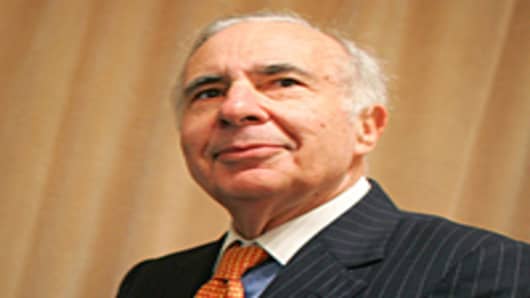Activist investor Carl Icahn raised his stake in Chesapeake Energy to 7.65 percent, according to a filing with the Securities and Exchange Commission, and hammered its leadership in a letter accusing the company of “woefully inadequate” corporate governance.
"The basic function of a board is to oversee management and to hold it accountable,” Icahn wrote in a letter to the Chesapeake board attached to the filing. "We believe the board has failed this duty in a dramatic fashion. Rather than act as a source of stability and provide assurance to shareholders, this board has led the company through a highly publicized spate of corporate governance breakdowns while amassing an astounding $16 billion funding gap, which we believe has contributed to the share-price decline of over 55% from the 52-week high.”
Icahn argued adamantly for shareholder representation on the board and expressed disappointment that, after broaching that idea at a recent dinner meeting with Aubrey McClendon, Chesapeake's founder, CEO and chairman, the company subsequently refused to consider the idea until it had named a successor chairman.
He demanded that Chesapeake remove four directors from its board. He would have them replaced with two directors he selects and two directors selected by another large shareholder.
Icahn warned in the letter that if the company did not comply with the board changes, "we, as activists, will immediately take whatever 'actions' we feel are necessary to protect the value of this company."




